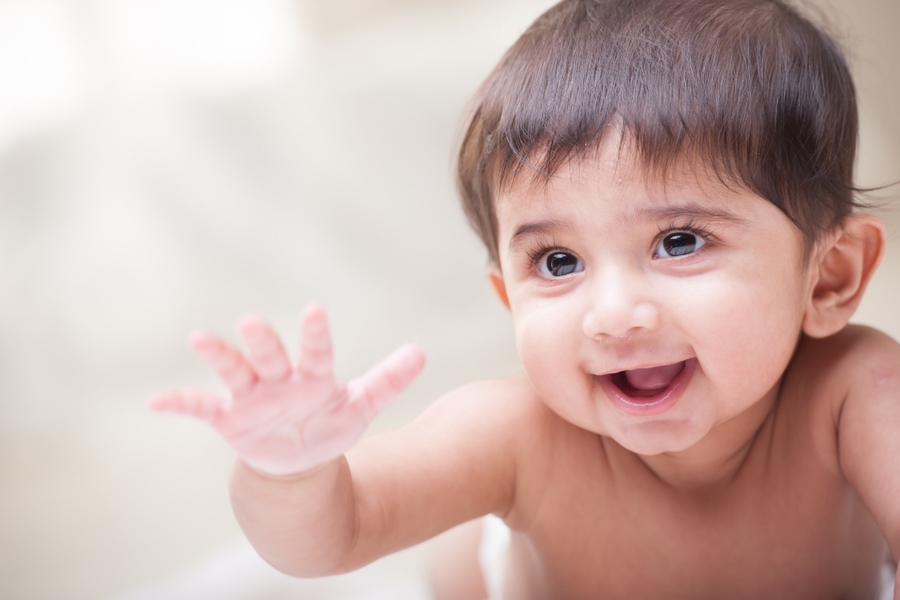
When Do Babies Start Teething: A Guide
27 Sep 2018 | 3 min Read
Babychakra
Author | 1369 Articles
The appearance of your baby’s first tooth is an important moment that every parent looks forward to. The first signs that indicate that your baby has started teething is a change in their behaviour, sleepless nights, and puffy gums.
All of these are a natural part of the teething process. Teething occurs when the new tooth pushes through the enamel and emerges from the gums. This pressure on the gums is the reason for the irritability and puffiness. Don’t worry, this is natural and is a part of the teething process.
This naturally leads to more questions like – when do babies start teething, how long will it last, and what can you expect?
You can find answers to all those questions in this post.
The Beginning
The first teeth usually appear after 4 to 7 months from the date of birth. It can also be as early as 3 months for some babies and as late as 12 months for some others. If your spouse got your first teeth early in your infancy, then chances are that your child will also teeth early. The same goes if you both teethed late. Also keep in mind that premature babies teeth later than full-term babies. You should definitely visit a dentist if your child doesn’t start teething by the age of 16 months.
The Timeline
Your baby’s teeth always appear in pairs and usually follow this order:

6 to 12 Months:
The first teeth that appear are the central incisors. This is the pair of teeth in the middle of the baby’s mouth. The lower ones are the first to appear.
9 to 16 Months:
After the central incisors, the ones adjacent to it are up next. These are the lateral incisors.
13 to 19 Months:
The first molars, which are the broad teeth on both sides of the jaw are next in line.
16 to 22 Months:
Canines or cuspids which are the pointed long teeth are the next set to appear.
25 to 33 Months:
The second molars, which are the innermost set of teeth are the last ones to appear.
The timeline mentioned above is only a guide and can vary if your baby starts teething earlier or later. Your child will have a full set of primary teeth by the age of three.
What to Expect?
Some babies don’t feel a thing while it can be really painful for some others. It is understandable that watching your child go through this is difficult for you too. But this usually goes away after the first few teeth appear.
Your baby’s irritability is their way of telling you they are in pain. Some of the other symptoms you can look for are puffy gums, excessive drooling, ear pulling, tendency to gnaw on objects, and a change in the food habits.
Keep in mind that your baby might develop a low-grade fever during teething. But if the fever becomes high, it can be a sign of infection and you should definitely consult a pediatrician.
Prepare for the Future
With new teeth comes the responsibility of brushing and taking care of it. A soft bristled brush and little warm water is a good place to start. You can also use teething toys that your child can gnaw on. They relieve the discomfort to a huge extent.

The answer to the question – “When do babies start teething?”, is not straightforward. But you can use the above timeline and tips as a guide to help you and your child get through this trying time.
A


Related Topics for you
Suggestions offered by doctors on BabyChakra are of advisory nature i.e., for educational and informational purposes only. Content posted on, created for, or compiled by BabyChakra is not intended or designed to replace your doctor's independent judgment about any symptom, condition, or the appropriateness or risks of a procedure or treatment for a given person.
